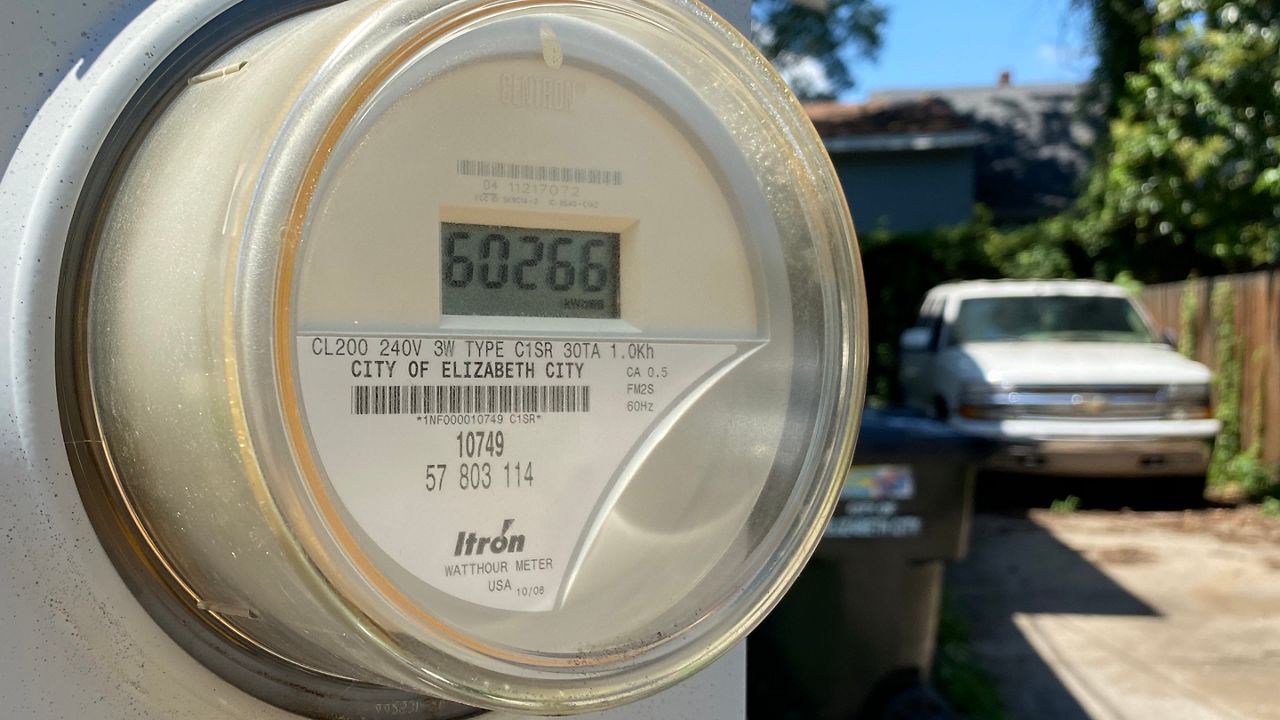RALEIGH, N.C. – A statewide order expired this week that allowed people across the state to put off paying utility bills during COVID-19.
This was meant as a reprieve for folks facing financial hardships, but for some cities it has now put them in some tough financial times.
“What we saw was 28 percent to 32 percent of customers were not paying any money, which is a substantial amount,” says Richard Olson, city manager of Elizabeth City. “We have roughly 2,500 customers in our system that have a balance due over 30 days.”
Elizabeth City is one of over 70 cities in North Carolina that is what is known as an "Electricity." It provides power for its residents through wholesale purchases from major power companies.
Under an executive order issued by Gov. Roy Cooper on March 31, residents across the state were offered a reprieve during COVID-19. The order said they could postpone paying their power bill, and their service would not get shut off.
“That affects the city's cash flow position, because we are roughly $2 million now in uncollectable, or accounts receivable, we are $2 million in the hole right now,” Olson says.
Elizabeth City has just under 18,000 residents, and over a quarter of them are considered to be living in poverty.
Laurinburg is very similar with 16,000 residents, and 34 percent living in poverty.
“Not knowing the extent of it or how long it was going to last, internally we cut all of our purchase orders and expenditures the morning after he announced,” says Charles Nichols, the Laurinburg city manager. “So we eliminated all our spending that we had other than emergency needs.”
In his position as state treasurer, Dale Folwell oversees the Local Government Commission.
He says, while COVID-19 has created financial difficulties for many residents, businesses, and local governments, electricities – which provide most utilities for their area and in turn have to pay bills for them – are in the most trouble.
“We're putting people in rural North Carolina especially in a mathematical vortex that they will never be able to climb out of, because if you are able to defer the payment of these utilities for four months,” Folwell says, “and then the executive order says you need to collect it over the next six months, that means people will be facing utility bills that are 166 percent higher than what they were, and that puts them in a mathematical impossible situation.”
Elizabeth City did get a waiver from the state before this executive order ran out saying it would be on the brink of bankruptcy if it couldn't start collecting utility payments again.
Laurinburg is not in as dire of straits but had written to the governor asking to have the power back in its own hands to determine when bills needed to be paid.
Even though the cities have been suffering, the governor says he understands if utility bills come due, he knows that is a hardship. His office is expected to announce a program to help with those bills for those who need it.



